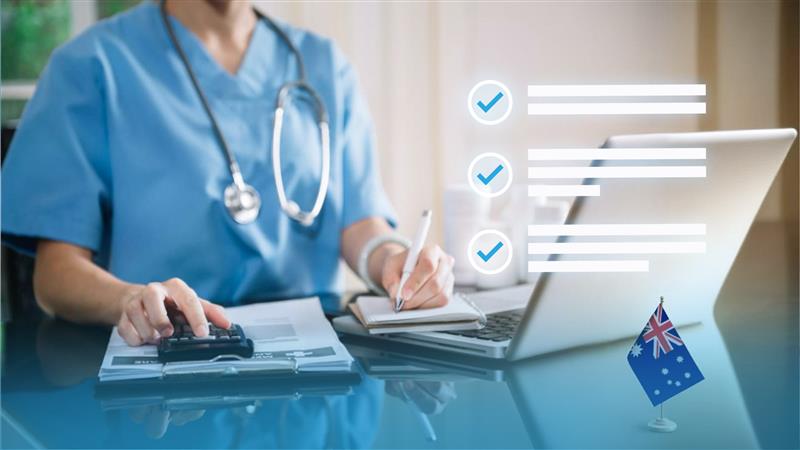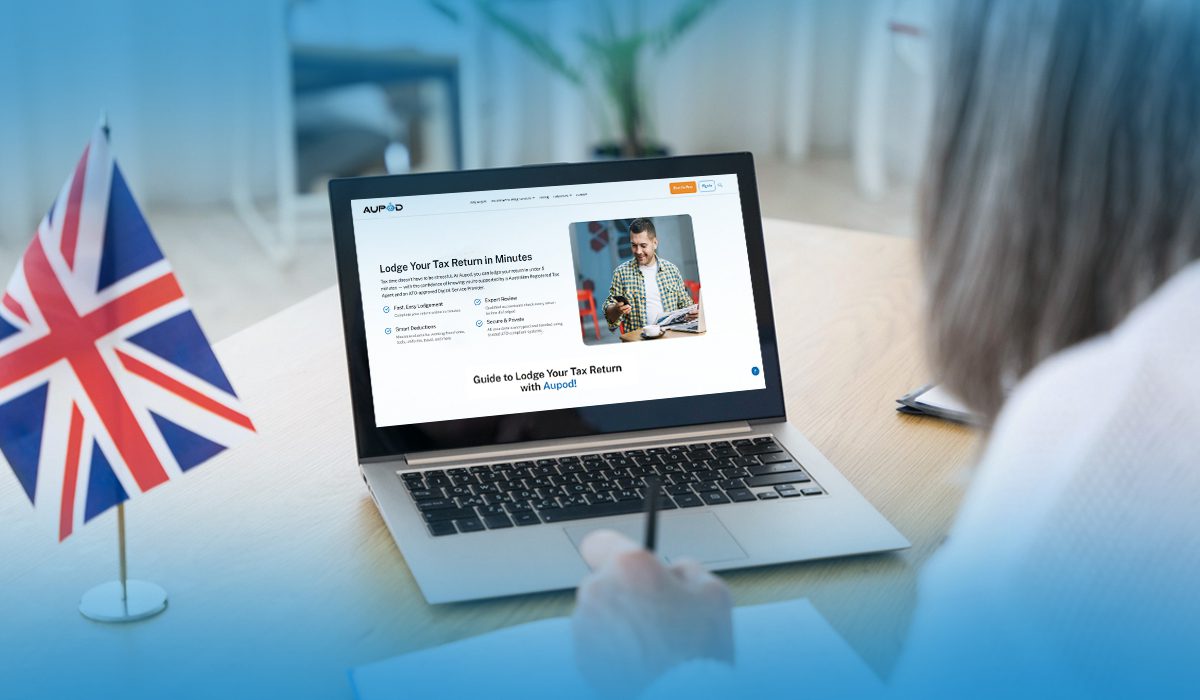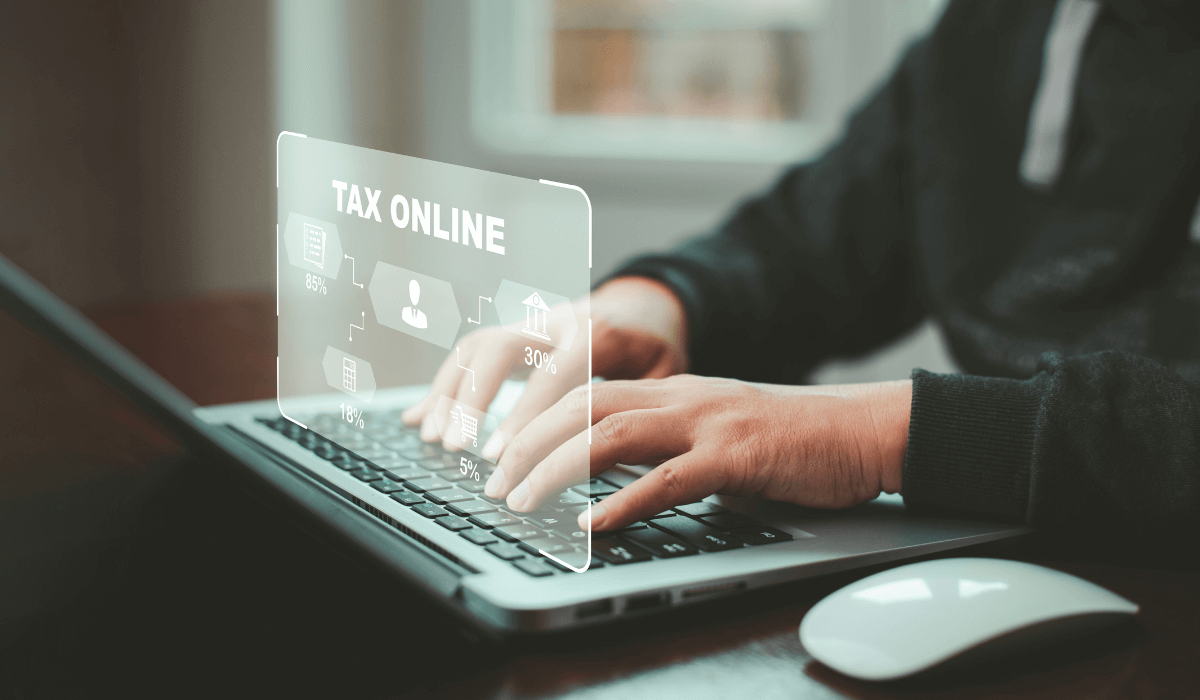5.0% of the entire professional workforce in Australia are healthcare workers. Doctors, nurses, dentists, or healthcare specialists have long shifts and finding time to fill out taxes during lengthy work hours is difficult for them. With long shifts, multiple job locations, or even running a private practice, medical professionals face unique tax rules.
You may be entitled to a wide range of deductions, but without expert help, you could be leaving thousands of dollars unclaimed each year. That’s where specialist medical tax services come in.
What are the ATO Rules for Medical Professionals?
There are rules set for the healthcare workers by the Australian Taxation Office. These guideline helps maximise refund while staying ATO compliant.
- Healthcare professionals can only claim work-related deductions for expenses that they paid for themselves (not reimbursed).
- Receipts, invoices, or digital records are important for claims.
- Apportion expenses that are part personal, part work (e.g., phone or car).
- Travel between home and your main workplace is not deductible, but trips between job sites or patient visits usually are.
Tax Deductions for Doctors & Healthcare Workers in Australia
A GP, specialist, dentist, nurse, physiotherapist or other medical professional is eligible for common tax deductions.
Work-Related Travel & Car Expenses
If you are a health professional, you can get some of your money back at tax time for the travel you do for work. This means if you drive your car from one clinic to another, visit a hospital, or go to a patient’s home, you can claim some costs. These can include
- The fuel you use in your car
- Bus or train tickets
- Taxi or rideshare trips
- Parking fees
- Even tolls
If you have to travel far for work, you can claim the expense of airfare, food, and hotel accommodations.
Self-Education and Professional Growth
To remain current, medical professionals must learn. This learning can cost money, like
- paying for courses
- buying books
- getting special training.
Sometimes you also need to travel or stay in a hotel for study, and you might use the internet or your phone to do classes online. The good part is, because this learning is for your job, you can claim these costs back at tax time.
Uniforms and Protective Clothing
At tax time you can claim protective gears used in your workplace. This includes things like scrubs, lab coats, gloves, masks, safety glasses, and even the cost of washing or dry-cleaning them. You can also claim protective shoes that are needed at work. But you cannot claim normal clothes, like pants or shirts, even if you only wear them while working.
Tools and Equipment
Healthcare workers can claim back the money they spend on tools they need for their job. This includes things like stethoscopes, blood pressure monitors, thermometers, medical bags, laptops, phones, tablets, and even special computer programs. When something costs more than $300, you don’t get all the money back at once, you claim a little bit each year while you keep using it.
Memberships & Registrations
Healthcare professionals can also claim certain memberships and registration regarding to work including:
- Australian Medical Association (AMA) fees
- AHPRA registrations
- Specialist college memberships
- Subscriptions to professional journals
Insurance Premiums
Healthcare workers can also claim the cost of some types of insurance. This includes professional indemnity insurance, which protects them if something goes wrong at work, and income protection insurance, which helps replace their pay if they can’t work because they get sick or injured. Only the part that is related to work can be claimed.
Other Common Deductions
Some other costs can also be claimed by healthcare workers. These include home office expenses like electricity or the wear and tear on work equipment, the fees you pay to a tax agent or accountant (but only in the next year’s tax return), and the cost of first aid training courses if your job requires you to do them.
Special Tax Cases for Medical Professionals
There are different tax rules applicable to medical professionals considering their scenarios.
Locum Doctor Tax Return
Locum doctors are often treated as independent contractors, meaning you may:
- Need an ABN.
- Be liable for GST if earning over $75,000.
- Claim travel, accommodation, and equipment as deductions.
- Be responsible for superannuation and PAYG instalments.
Self-Employed and Sole Trader Doctors
Running your own medical practice or working as a sole trader brings extra responsibilities:
- BAS and income tax lodgements.
- Payroll & super for staff.
- Bookkeeping and cash flow management.
- Business tax planning to minimise liabilities.
Nurses, Dentists, and Pharmacists
The claims vary, considering the field the healthcare professional is in.
| Professionals | Deductible Claims |
| Nurses | Uniforms, shoes, CPD courses, shift allowances. |
| Dentists | Specialist equipment, sterilisation costs, and clinic fit-outs. |
| Pharmacists | Licensing fees, software, and dispensing equipment. |
Business Tax for Medical Practices
The right structure can reduce tax and protect your assets. If you own or manage a practice, you’ll need to manage:
- BAS lodgements (GST reporting)
- Payroll tax & superannuation
- Cash flow planning to cover wages & equipment upgrades
- Bookkeeping for doctors & clinics
- Business structure setup (sole trader, partnership, company, trust)
Record-Keeping & Compliance Tips
The ATO requires strong record-keeping. Best practices include:
- Keep digital copies of all receipts (photos or PDFs).
- Track mileage with a logbook (12-week minimum).
- Use accounting software tailored for healthcare practices.
- Separate personal & business expenses.
How Aupod Helps Medical Professionals
At Aupod, we specialise in tax and accounting services for medical professionals. Our TPB-registered tax agents know the rules inside out and help you:
- Maximise deductions and increase your refund.
- Stay compliant with ATO regulations.
- Manage BAS, payroll, and bookkeeping for medical practices.
- Provide tax planning for doctors to reduce liabilities.
- Assist self-employed doctors, locums, and practice owners with end-to-end accounting solutions.
Conclusion!
Just like you advise your patients to seek expert medical care, it pays to get professional advice for your finances. Aupod helps you claim every eligible deduction, lodge accurate tax returns, and structure your practice for success.
From GPs and surgeons to dentists, nurses, pharmacists, and allied health professionals, we’ve got you covered.



